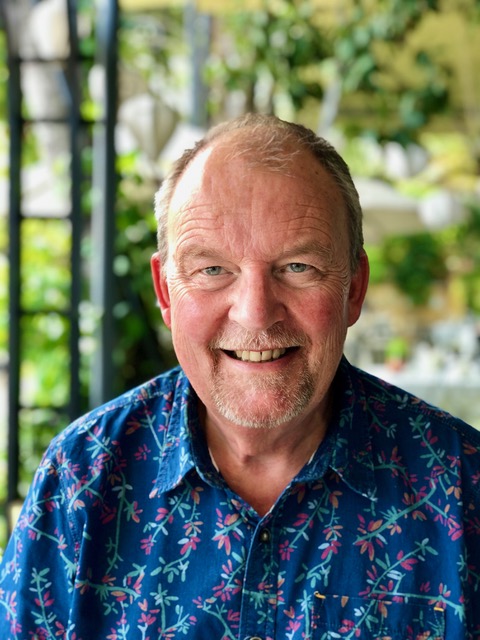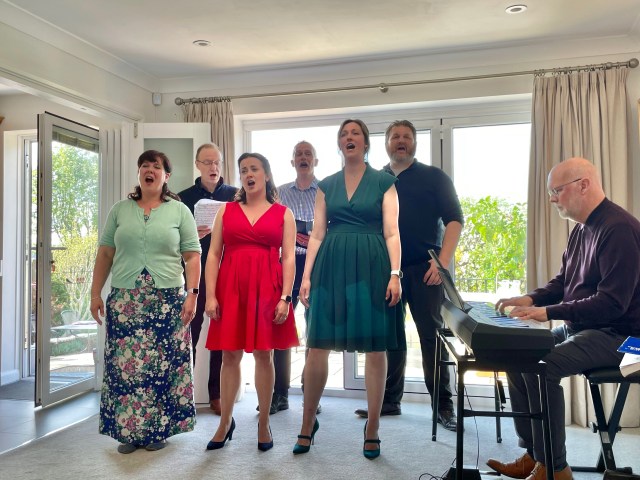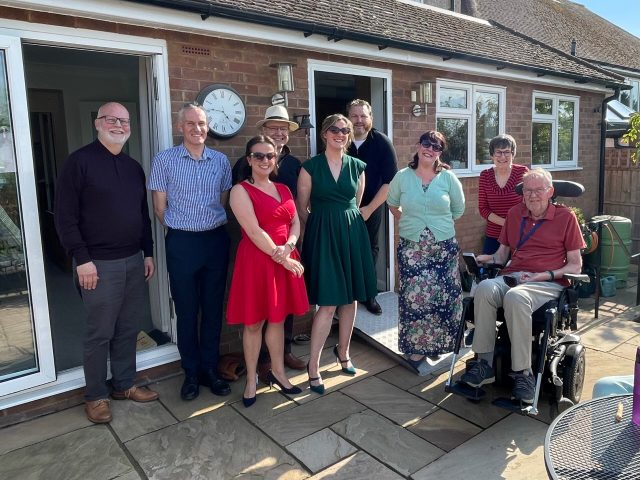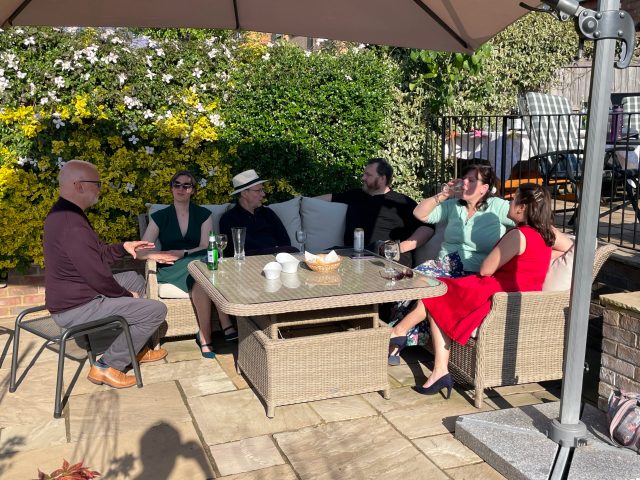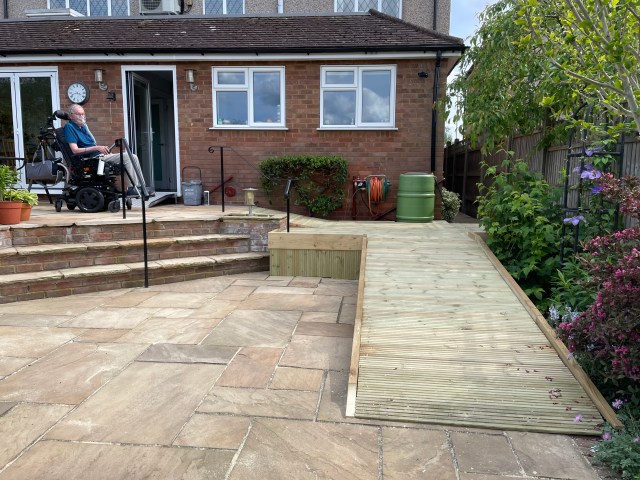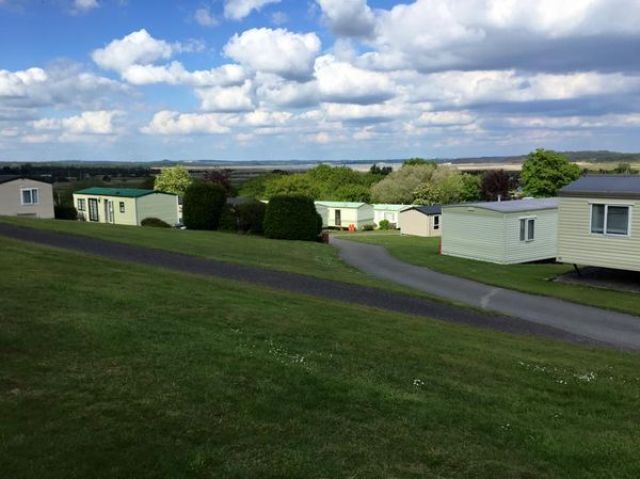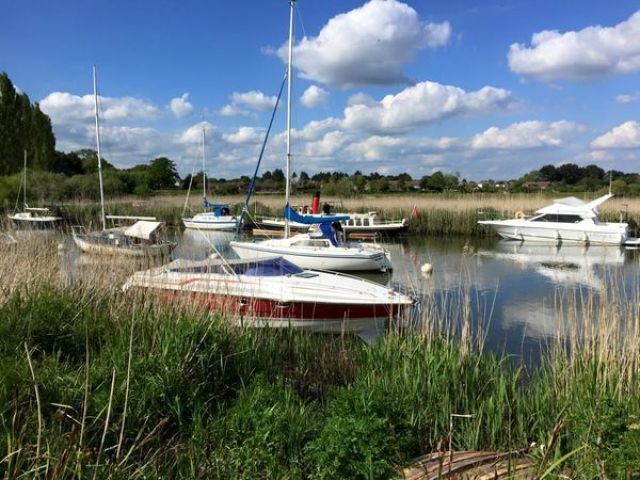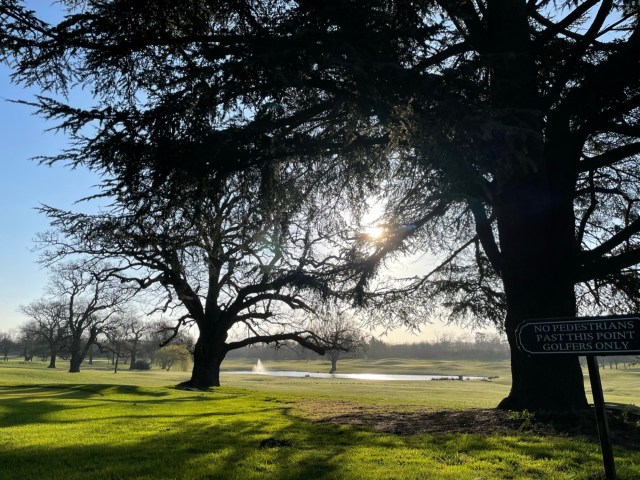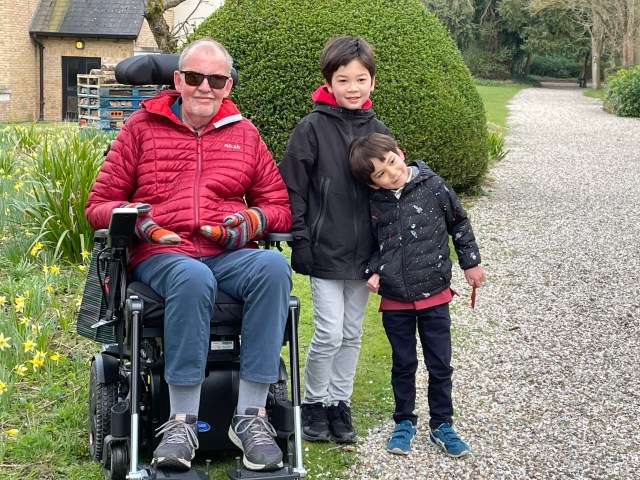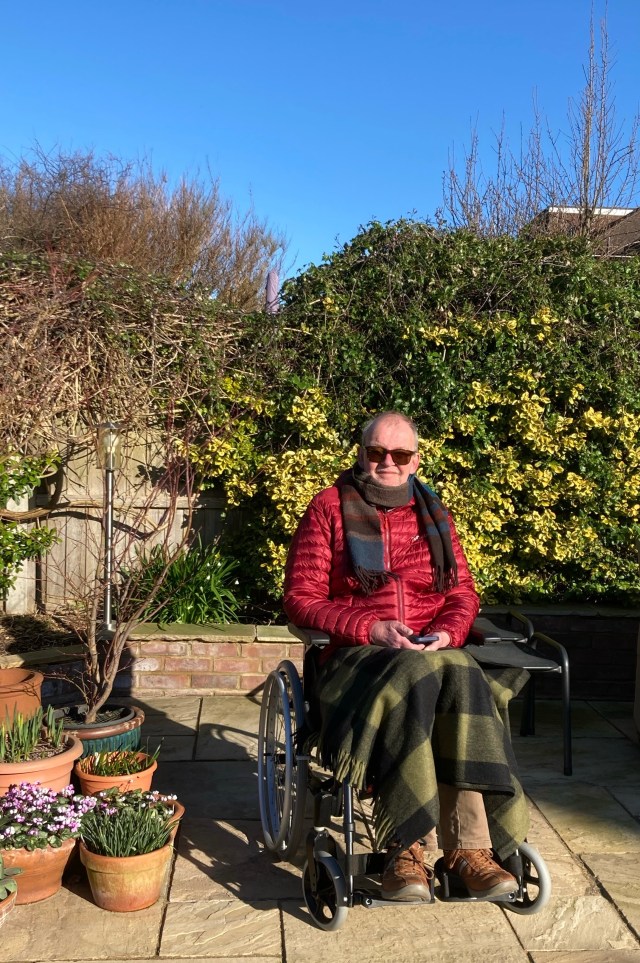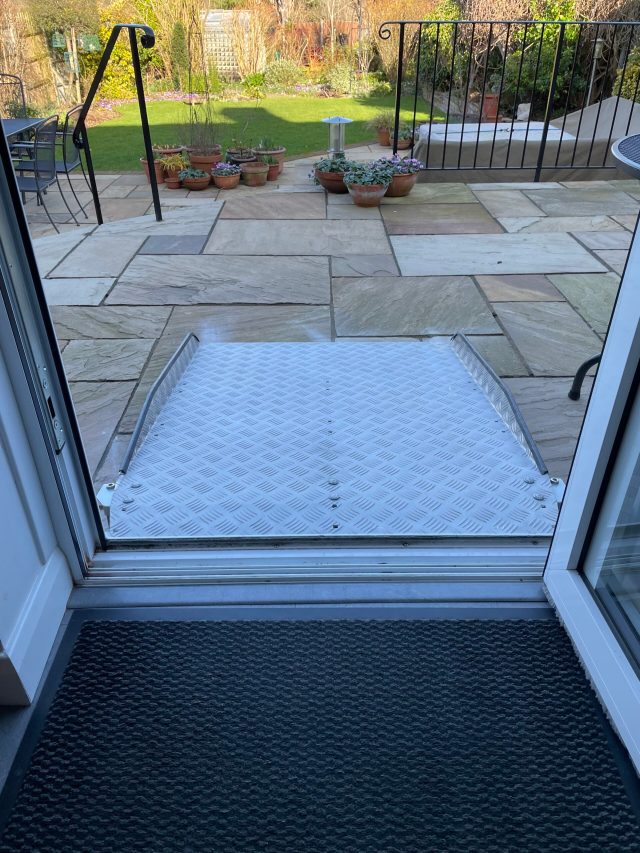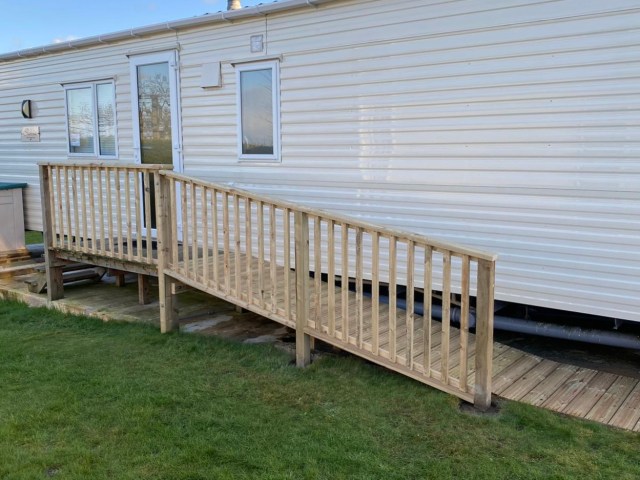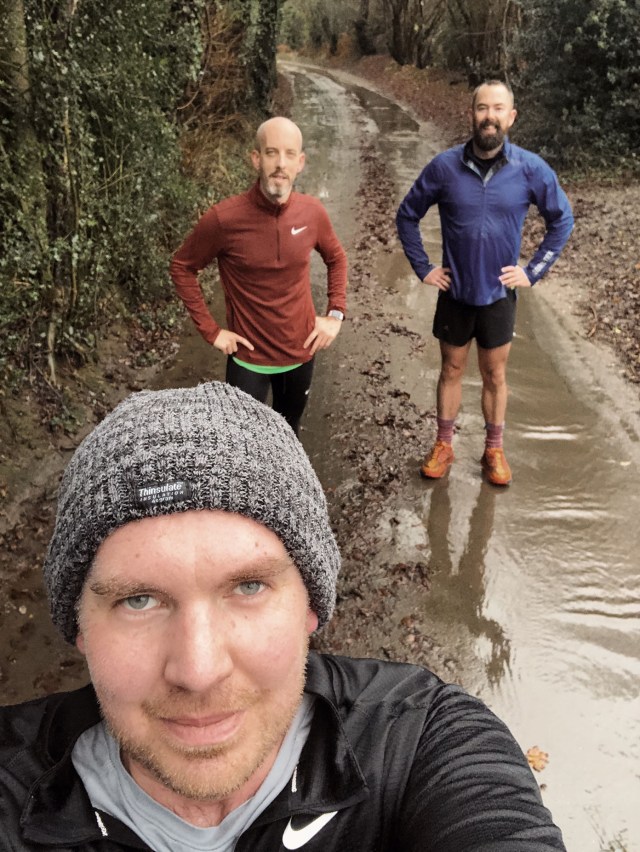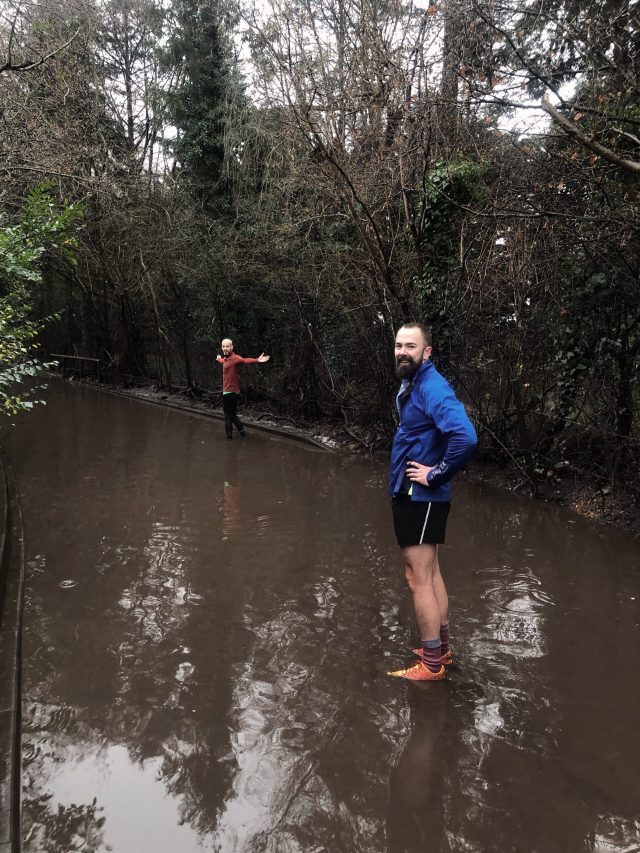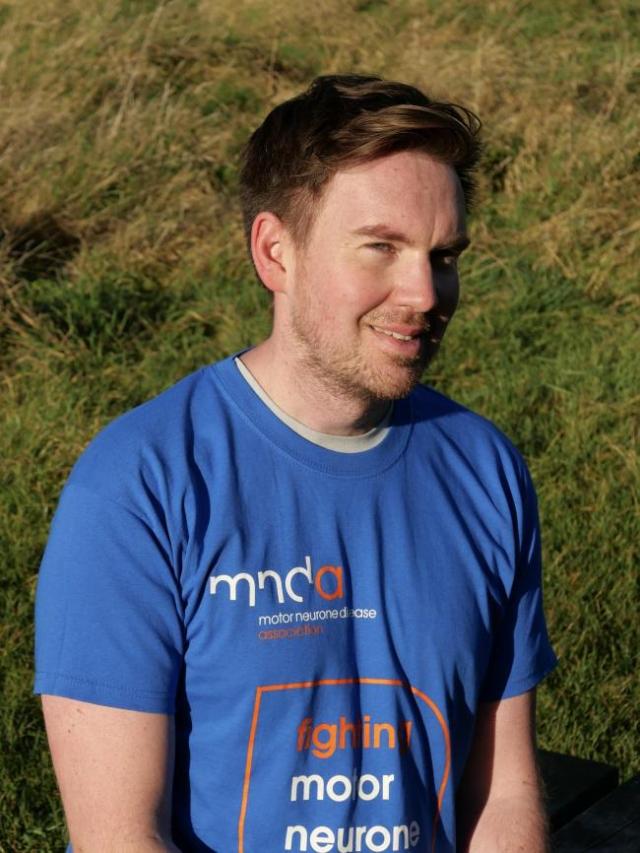My power wheelchair has broken. Four weeks later the new motors are still awaited, the delay doubtless will be blamed on COVID and Brexit. As it was supplied by the NHS there’s no provision of a replacement; they regard my ‘user operated’ folding wheelchair to be a substitute (except that this user can’t propel a pencil, let alone a wheelchair). We’ve hired a replacement at the cost of £105 per week. Once again, I wonder how those without spare cash could possibly manage with all the unexpected costs that MND brings.
On 10 November, 49 years to the day after passing my driving test, I surrendered my licence to the DVLA. This was one of the hardest days yet on my MND journey but, as I sat in the driving seat for the last time, it became all too obvious that my arms could no reach the steering wheel. My much-loved Skoda Kodiaq will be for sale very soon.
Over the course of the next couple of days the paralysis of my shoulders was just about complete, and my elbows are now getting difficult to use. My wrists get very sore after little use, and there’s a tendency for the fingers on my left hand to curl inwards. These rapid changes are seriously hampering my ability to do hundreds of daily tasks, including typing. At present I have two ways to type; the first is with one finger on my iPhone, which has the benefit of being relatively light and small, the second to use a mouse to click (one letter at a time) on an onscreen virtual keyboard on my MacBook (found in the Accessibility menu in System Preferences in MacOS 11 onwards).
I have to say that this monthly update has taken me three days to write so far (on and off) so I do hope someone reads it! Another big issue is that, because I can’t really type anymore, I can’t use the Predictable app on my iPad to speak for me – at just the time I need it.
Trying to be proactive, we have been looking at pricey eye gaze technology, which has to be the next step. There’s a new device, just the market, called TD Pilot (from Tobii Dynavox), and it was recently demonstrated to us at home. It’s brilliant and provides speech capability and (because it is hosted on an iPad Pro) you can also use eye movements to operate iPad apps via eye movement. It costs £7,000.
I was all set to buy this lifesaver however, working through my ever-supportive SALT (speech and language therapist) and the Communication Aid Service East of England (CASEE) I’ve eventually met the criteria for NHS provision which I’m both grateful for and excited about. The eye gaze equipment can’t come a day too soon as my speech is now almost unintelligible to everyone including Sue. We frequently have some funny conversations.
Weight loss is a common symptom of MND. I’m almost ashamed to admit that before pneumonia in Vietnam my weight had crept up to 96 kilos. Two weeks later, arriving home, I was 89 kilos and this was largely the result of not eating. What a great achievement!
Last week my weight was 76 kilos; my shoulders are incredibly bony, my arms resemble thin sticks and my left leg is following suit. I’ve been told that a three stone weight loss is enough, and a delivery of prescribed food supplement is on its way.
The causes of weight loss in MND are numerous and include muscle atrophy due to lack of stimulation, loss of appetite due to a general feeling of being unwell and taking longer to eat food to avoid choking (often leaving food on the plate). For me, weight loss without even trying has been a new experience. It will be interesting to see whether it can now be stemmed.
Towards the end of the month, after a week of self-isolation and PCR COVID tests, Sue and I were both admitted to the NMCCU (Neuro Muscular Complex Care Unit) at Queen Square – me as the patient and Sue as my carer. This arrangement saves the nursing team many hours of care, but it did remind us of being together in the COVID quarantine hospital in Ho Chi Minh City eighteen months ago (but it was considerably cleaner, cooler and more comfortable). During the two-night stay the pressure and the breathing rate on my BiPap ventilator were adjusted several times and it’s now working well. In fact, I’d go as far as to say it’s quite a comforting overnight experience, I’m sleeping well and feeling much brighter and refreshed now my blood bicarbonate level (HCO3-) is declining as I’m exhaling carbon dioxide (CO2) more effectively.
All in all, November has been a month of great change. I rather hope I’m on more of a plateau in December.
Thanks for reading and Merry Christmas!
